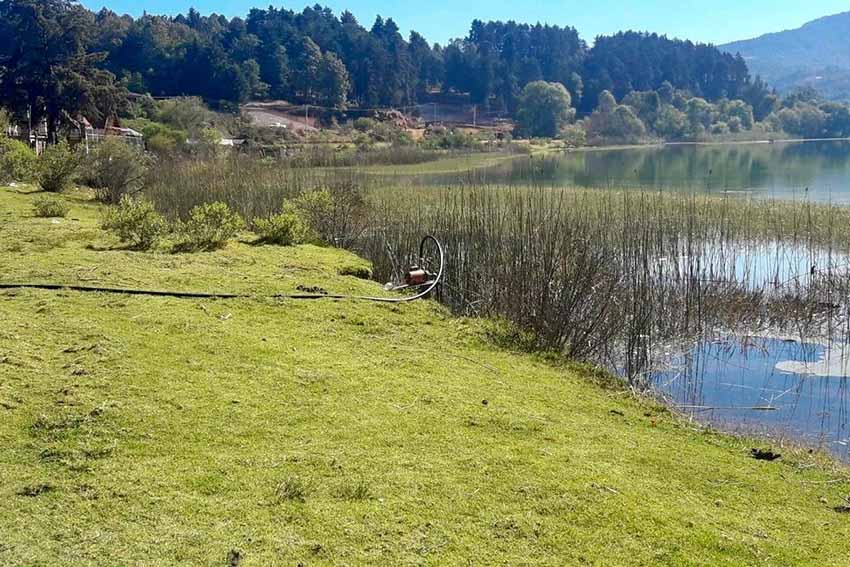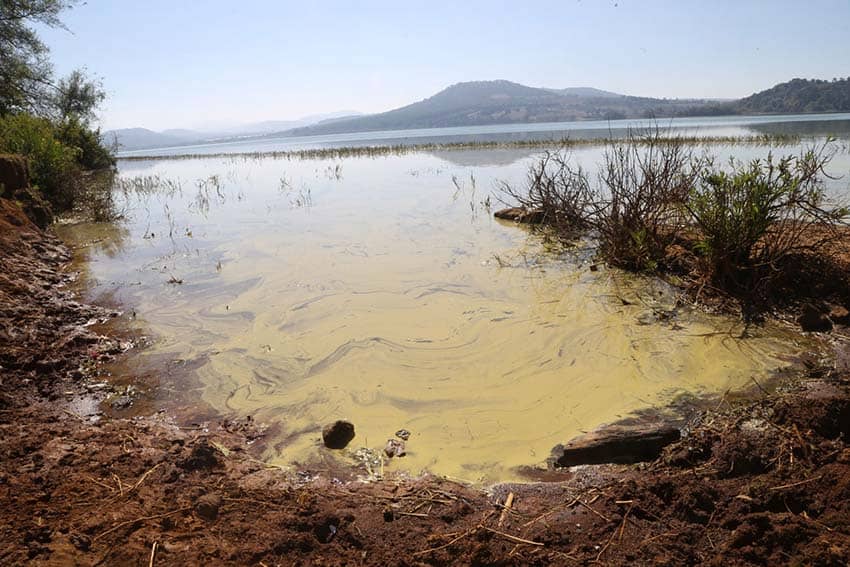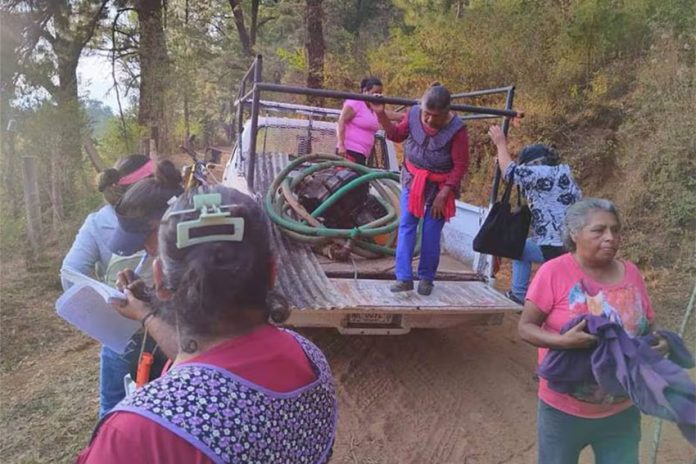Indigenous villagers living alongside Zirahuén lake in the western state of Michoacán dismantled illegal pumping equipment this week that was siphoning water from the lake to irrigate nearby avocado farms.
After a Supreme Indigenous Council meeting of the local Purépecha community authorizing action, female members from the lakeside town of Zirahuén on Monday dismantled and destroyed four pumps and hoses siphoning water from the lake, apparently for use by nearby avocado orchards.

At the same time, the Naval Ministry (SEMAR) was tasked with protecting and rescuing the emblematic Lake Pátzcuaro about 25 kilometers (15.5 miles) to the northeast, which had also been targeted by water thieves, the El Financiero newspaper reported.
The clandestine water theft operation at Zirahuén lake was detected more than a week ago via satellite surveillance carried out by the Forest Protection Agency (Guardian Forestal), according to the newspaper La Voz de Michoacán. The agency — an arm of the Environment Ministry (Semarnat) — uses satellite imagery to fight illegal logging.
In early April, local Michoacán and federal authorities had established a joint operation to halt illegal pumping from Lake Pátzcuaro, but the huachicoleros (the slang Mexican Spanish term for criminals who illegally siphon oil or water) simply moved their enterprise to Zirahuén lake.
When authorities failed to react quickly to reports of illicit pumping at Zirahuén lake, the indigenous Purépecha communities that live around the lake took matters into their own hands.
Afterward, the Supreme Indigenous Council issued a statement defending their decision and decrying the inaction of authorities, declaring that they “are still waiting for support from the police to put a stop to the theft of water from the lake.”
Purépecha communities in both Zirahuén and Pátzcuaro have long complained about the illegal activities of avocado farmers. While the farmers make millions, community members told the newspaper El Financiero, the lakes suffer tremendously from the illegal siphoning.

Zirahuén residents have also been raising concerns for years that avocado farmers situated in the mountains surrounding Zirahuén lake are also responsible for polluting the lake with farming chemicals applied to avocado crops. During the rainy season, they say, chemical residue is carried down the mountain and ends up in the lake.
Concerned residents of lakeside communities that depend on the waters for their livelihood have watched the level of Zirahuén lake drop 3 meters in water depth due to drought and huachicoleo (water theft).
The local fishermen’s union has implemented conservation measures to preserve the lake and the surrounding flora and fauna, for instance, fighting to prohibit motorized crafts from being used on the lake, according to the news agency Quadratín Michoacán.
Community leaders also worry that the diminishing water level will negatively impact tourism, also a concern for residents of cities beyond the immediate vicinity of the lake. Quadratín reported that 60% of fishermen, restaurateurs and tourism operators who rely on Zirahuén lake live in the city of Salvador Escalante, which is 15 kilometers (9 miles) to the east and Zirahuén’s municipal seat.
Meanwhile, Semarnat personnel have begun dredging operations at the endangered Lake Pátzcuaro as part of its recuperation efforts.
In a related move, Semarnat took steps to protect more than 33,000 hectares of land in the Pátzcuaro Valley by designating it a Natural Protected Area. The preservation of this land — including a reforestation project — would benefit the lake as it would serve as a recharge zone and would reduce soil erosion that chokes the lake.
Another Michoacán lake just north of Zirahuén — Cuitzeo lake — is also dying out. A February report indicated that it has lost 70% of its water over the past 25 years.
With reports from Milenio, El Financiero, Quadratín Michoacán and La Voz de Michoacán

